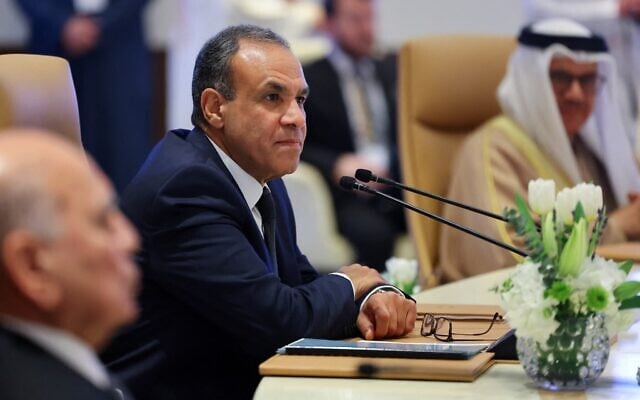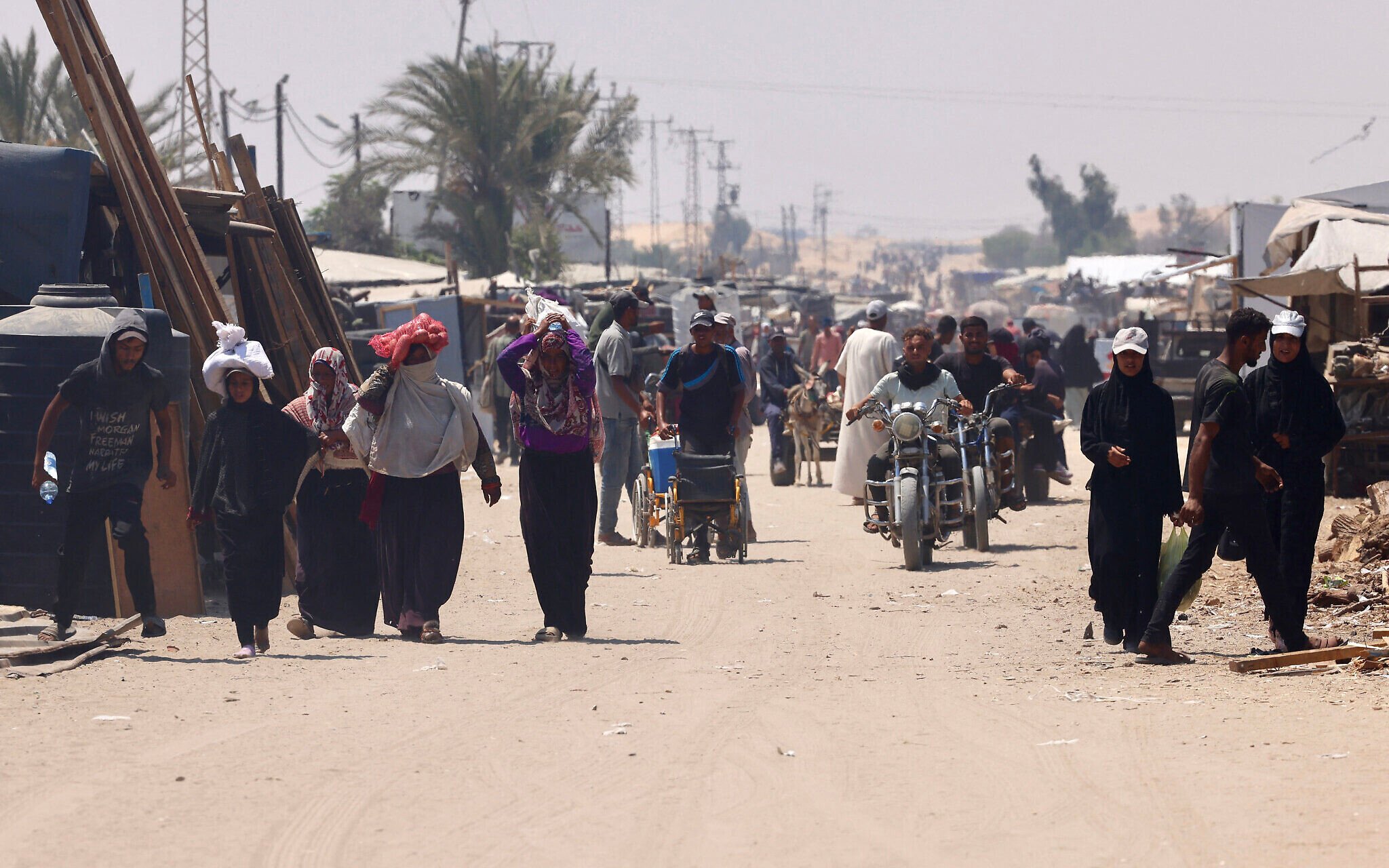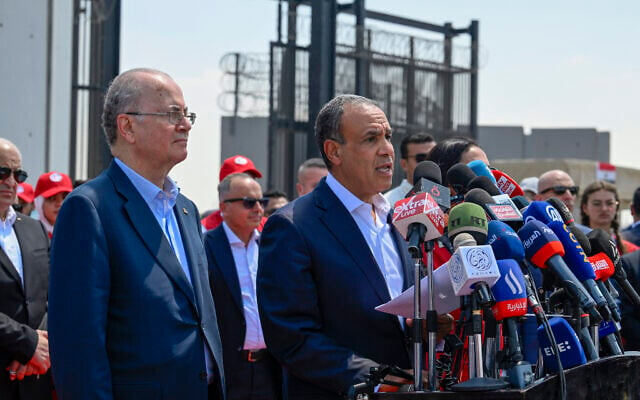Prime Minister Benjamin Netanyahu accused Egypt on Friday of “imprisoning against their will residents in Gaza who want to leave a war zone.” The statement from the Prime Minister’s Office came after Cairo slammed Netanyahu for saying earlier that he would let Palestinians leave the Strip through the Rafah Border Crossing if they wanted to do so, but they would be blocked by Egypt on the other side.
Egypt’s foreign ministry expressed its “utmost condemnation” of the comments Netanyahu made during an interview Thursday with “Abu Ali Express,” a popular, anonymously run Arab affairs channel on the Telegram messaging app.
“The comments attributed to Netanyahu regarding the uprooting of Palestinians from their land, including through the Rafah Crossing, are an attempt to prolong the escalation and instability, and avoid confronting the consequences of Israeli violations in Gaza,” the statement said.
In response, Netanyahu’s office said the prime minister was “speaking about the free will of every single person in choosing where to live. That’s a basic human right at any time — especially wartime,” read the statement.
Also Friday, Egypt’s foreign minister told reporters in Cyprus that Egypt will not tolerate the mass displacement of Palestinians and repeated the charge that Israel is committing genocide.
“Displacement is not an option and it is a red line for Egypt and we will not allow it to happen,” Egyptian Foreign Minister Badr Abdelatty said.
“Displacement means liquidation and the end of the Palestinian cause and there is no legal or moral or ethical ground to evict people from their homeland,” he added.
“What is happening on the ground is far beyond the imagination. There is a genocide in motion there, mass killing of civilians, artificial starvation created by the Israelis,” Cairo’s top diplomat added.

Egypt’s Foreign Minister Badr Abdelatty attends an Arab officials’ meeting in Riyadh on January 12, 2025. (Fayez Nureldine / AFP)
Qatar, which like Egypt is mediating hostage-ceasefire negotiations between Israel and Hamas, on Friday also condemned Netanyahu’s remarks “regarding his desire to displace Palestinians, considering them an extension of the occupation’s approach to violating the rights of the brotherly Palestinian people, its contempt for international law and agreements, and its poisonous efforts to block opportunities for peace, especially the two-state solution.”
Israel adamantly rejects the accusations that it is causing starvation in Gaza and committing a genocide there, saying it makes efforts to facilitate humanitarian assistance and to avoid civilian casualties. It blames Hamas for fighting among civilian populations and accuses it of stealing aid.
Speaking with “Abu Ali Express,” Netanyahu had said half of the Gaza Strip’s residents want to leave the devastated territory, a claim roughly borne out by a May survey.
The full exclusive interview with Israeli Prime Minister Benjamin Netanyahu, with subtitles in English. pic.twitter.com/lVkAQWMMAq
— Abu Ali (@Abualiexpress) September 5, 2025
“I can open the [Rafah] crossing for them, but they’ll be blocked… immediately by Egypt,” said Netanyahu. “We’re not seeking to expel [Palestinians], but to lock them in? By force? All the human rights warriors — where are you?”
“When it comes to something that serves Israel, there are no human rights. Even when it’s about giving the basic right to every Palestinian, to leave,” he said.
Israel and Egypt have imposed varying degrees of blockade on Gaza since Hamas seized power from rival Palestinian forces in 2007 in a violent coup. Israel says it is necessary to limit Hamas’s ability to smuggle in arms with which to attack the Jewish state. Critics of the blockade say it amounts to collective punishment of Gaza’s roughly 2 million Palestinians.

Palestinians carry humanitarian aid that they gathered after an aid drop, as they walk in the al-Mawasi area of Rafah in the southern Gaza Strip on August 18, 2025. (AFP)
To avoid a surge in refugees, Egypt closed its border with Gaza after Israel seized the Gaza side of the Rafah border crossing last year, seven months into the war sparked on October 7, 2023, when Hamas stormed southern Israel to kill some 1,200 people and take 251 hostages. Israel said it was necessary for it to control the Egypt-Gaza border because Hamas was smuggling weapons into the Strip.

Palestinian Authority Prime Minister Mohammad Mustafa (L) and Egypt’s Foreign Minister Badr Abdelatty (C) attend a press conference on the Egyptian side of the Rafah border crossing, August 18, 2025. (Khaled Desouki / AFP)
Following the outbreak of the war, Egypt constructed a concrete border wall that reaches six meters into the ground and is topped with barbed wire. Egypt has also built berms and enhanced surveillance at border posts, security sources said.
As Israel launches a new offensive to capture Gaza City, Egypt has again apparently bolstered its forces along its border with Gaza due to concerns that Palestinians will try to flee to Sinai.
Agencies contributed to this report.






